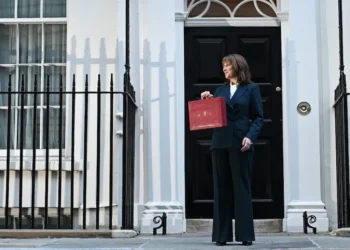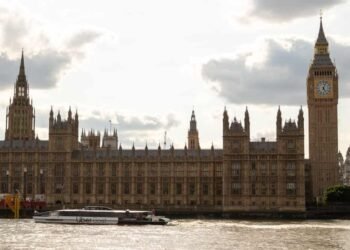The UK’s national debt to soar to an unprecedented level, with experts forecasting it will triple to over 270% of national income in the next 50 years.
The warning, issued by the Office for Budget Responsibility (OBR), highlights the profound impact of an aging population, climate change, and rising global security concerns on public finances.
In a report outlining the challenges for government tax and spending policies over the coming decades, the OBR noted that the national debt had already tripled since the early 2000s. If trends continue, the debt could triple again by 2070.
Global Shocks Put Pressure on Finances
The OBR emphasized that the rise in debt is not unique to the UK, but rather a growing concern for developed nations worldwide. The report acknowledged that countries across the globe are struggling with “competing demands on the public purse” amid frequent global disruptions.
“It is hard to escape the conclusion that the world is becoming a riskier place,” the OBR said, noting that the financial costs of these risks are rising sharply for governments.
Domestically, the report pointed out additional pressures that are pushing up the costs for governments. Aging populations, slower economic growth, the ongoing climate crisis, and rising geopolitical tensions are all making it harder for the public sector to maintain financial stability.
In this uncertain environment, governments have found it difficult to rebuild fiscal resilience during the brief periods of calm between global crises.
The OBR warned that without timely policy interventions, debt levels could spiral out of control. “Governments would need to take mitigating policy action to prevent this debt spiral from occurring,” the report stated.
Higher Taxes May Ease Future Borrowing
Despite the grim forecast, there were some potential bright spots. The OBR suggested that recent tax hikes imposed by both Conservative and Labour governments would help curb public borrowing over the next five decades.
The higher taxes are expected to lower the debt-to-GDP ratio from a previously projected 320% to a more manageable 270%.
Modest increases in life expectancy over the forecast period could also alleviate some of the financial strain. With fewer elderly citizens than previously expected, the costs of elderly care are projected to be lower.
Additionally, a sharp decline in fertility rates is predicted to ease the financial burden of children’s services.
However, the OBR warned that under a more pessimistic scenario, which includes the risk of further pandemics and an inadequate response to climate change, the debt could still balloon to 385% of GDP.
Public Finances Strained by Previous Governments
Darren Jones, the Chief Secretary to the Treasury, responded to the report by placing blame on past administrations.

“The OBR has laid bare the shocking state that our public finances were left in by the previous government,” he said. Jones highlighted that the national debt is at its highest point since the 1960s, while taxes are at levels not seen since the 1940s.
In defense of the current government’s policies, Jones stated, “That’s why this government began work immediately to address the inheritance with tough choices on spending alongside ambitious action to drive growth. By fixing the foundations, we will rebuild Britain and make every part of the country better off.”
With the combination of rising global risks and domestic pressures, the future of the UK’s financial stability remains uncertain. However, the government appears committed to tackling the mounting challenges head-on.
READ ALSO: SEC Releases GHS 1.5B for 2019 Fund Management Collapsed Investors























